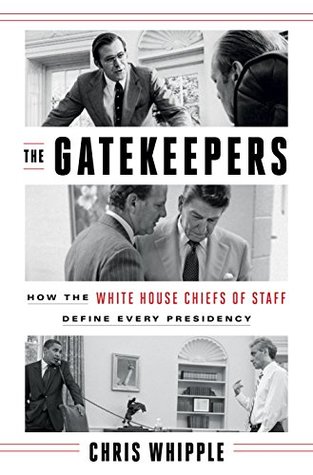More on this book
Community
Kindle Notes & Highlights
Read between
October 8 - October 27, 2020
Barack Obama observed: “One of the things I’ve learned is that the big breakthroughs are typically the result of a lot of grunt work—just a whole lot of blocking and tackling.” Grunt work is what chiefs of staff do.
Dwight Eisenhower’s vice president, Nixon
How we decide what is major and what is minor is the key to whether this is a good White House staff or a lousy one.”
Gerald Ford was a gregarious Michigan congressman who had risen to minority leader largely because he had made few enemies (Rumsfeld had spearheaded his campaign for the position).
Ford’s knowledge of the federal budget was encyclopedic; they arranged for him to conduct the annual press briefing on it (a subject so arcane that JFK, LBJ, and Nixon never attempted it). Cheney insisted that few presidents had a better grasp of the workings of government: “He knew it cold. This is a guy who spent twenty-five years on the Appropriations Committee and on the Defense Appropriation Subcommittee. I can remember him correcting a budget analyst on how many park rangers were in the National Park Service.
“He knew when to hold ’em; he knew when to fold ’em,” says Baker. “He was a great negotiator. Reagan always said, ‘I’ll take eighty percent of what I want, and come back later for more.’ He never understood the diehards who would go off the cliff with their flags flying.”
“In campaigning, you try to demonize your opponent. In governing, you make love to your opponent. That’s how you put coalitions together. Jim Baker understood campaigning, but he was a real pro at governing.”
pogroms
“We were all mad at him,” says Podesta. “Everybody was mad at him, and most of us, including me, let him know it. It was a sense of disbelief—like, ‘How could you be so, mmm, stupid?’ ” Podesta swallows the adjective. “He swore at me a lot and I swore at him a lot. But I think we all felt a personal bond to him, and loyalty to the project that he was trying to engage in.”
“There was also intelligence that the bureaucrats in Iraq would show up to work and make sure the sewer system worked, or the lights came on, or the traffic lights worked. And the bureaucrats didn’t show up—so that intelligence was flawed. That was a great frustration.”
George W. Bush could take credit for others on his watch: routing the Taliban in Afghanistan; decimating al-Qaeda in its lair; preventing another attack on the U.S. homeland; investing billions of dollars in the fight against AIDS in Africa. Unlike his father, he had the satisfaction of being reelected to a second term.


